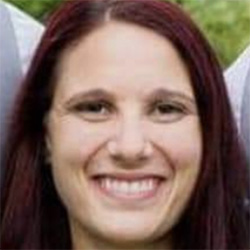Orus Coffield suffered from a rare form of cancer known as, Myxoid Liposarcoma. Although most cancer treatments don’t offer a 100% guarantee, treatment for rare forms of cancer are always a bigger gamble. He was diagnosed in 2016, and after 6 years of treatment, he sadly passed away. But not before offering some deep insight into the life and the disease. Before his death, he wrote his obituary. The emotionally profound obituary may offer a new perspective for people everywhere.
What is Myxoid Liposarcoma
Firstly, let’s address what myxoid liposarcoma is. Cancer is the number two killer in the United States, and there are many types of the disease. Cancer can impact almost any part of the body; however, some are less common than others. Myxoid Liposarcoma is incredibly rare, with an average of around 2,000 cases diagnosed annually.
This type of cancer is found in the tissues in body fat cells and affects people ages 20-40. Researchers are still trying to determine the cause, but sometimes, a common cause can be trauma. It is most commonly found in the lower regions of the body, including the abdomen and gastrointestinal regions. The tumors are usually slow growing and affect soft tissue.
News of Times Past
When newspapers were still the primary news source, there used to be sections of announcements. People could learn of weddings, homes for sale, available jobs, and of course, there was the obituary section. Typically, an obituary is a short excerpt summarizing the life and death of someone who’s recently passed away. It’s not common for someone to write their own. However, in Orus’ case, there were some things he felt needed to be said. After some reflection, he wrote an in-depth obituary in which he explains the gratitude he felt for his life.
Read: The “Last hour” with my wife… An amazing appreciation letter from a husband that will make you cry…
Writing a Heartfelt Obituary
He began the obituary with, “I’ll get this out of the way early: Cancer killed me. I know we all skim through the obits curious to know each person’s cause of death.” The 43-year-old from Marlborough, Connecticut continued, “After 6-plus years of treatments, anxiety, pain and occasional moments of hope it came down to the brutal truth that my body could no longer carry on.”
He was a father and a husband and found many moments to be grateful for. “This isn’t how I expected my final chapter would be written,” he wrote. “I had dreams just like anyone else of raising my kids, being a partner to my spouse for years to come and enjoying growing old surrounded by the people I love.” Unfortunately, this would not be the case, but his obituary continued with some insight about life. He wrote, “My time on this Earth may have been shorter than I would like, but a life full of enriching experiences has resulted in some important lessons learned. Those lessons are simple too — be kind, be honest and be helpful. If any words we say or actions, we take can’t meet those criteria then they are best left unsaid and undone.”

Empowering Oneself
He adds, “A perk of writing my own obituary is that I get the last word and it is this: I never want my death due to cancer to be discussed in the style of ‘he lost his battle’ or ‘after a long valiant fight’ or any other similar language. Cancer isn’t an invader like a foreign virus or bacterium,” he shared. “Cancer is my own body’s DNA gone haywire. Who am I fighting against? My own body? Or maybe my body is a battlefield, in which case who is the enemy? And now that I have died due to cancer does this mean I didn’t fight hard enough or lacked the will to live? Of course not.”
From this perspective, it seems as though he wants people to stop “victimizing” other cancer patients. It is a difficult fight and takes a huge toll on the body. He seemed to feel a sense of empowerment. Orus openly expressed his gratitude for life. He continued with his desire for people to stop referring to someone as having lost a battle.
An Obituary that Made Waves
His obituary had a profound impact on a 33-year-old from Los Angelos. Annie Bond was 26 at the time of her diagnosis. The words of Orus’ obituary resonated with her young woman because it, “confronts the idea of a cancer patient as a fighter, which often glosses over the reality of the illness.” She told TODAY, “Cancer is something that if we could figure it out and predict it, we would have been able to cure it by now. But it’s something that outsmarts the smartest doctors, the smartest scientists. So, this idea that someone didn’t fight hard enough, I think, is an insult because there’s nothing that you can do. Cancer treatment is luck.”
When Bond was diagnosed, doctors gave her a 2–5-year life expectancy. It has now been 7 years and so far, she’s been responding well to her treatment. She also said, “It’s an unpredictable disease that is, in my opinion, the ultimately equalizer because it doesn’t care how good of a person you are, how much money you have, what your political affiliation is, if you’re a child.”
Orus’ obituary offers a gentle reminder to give a voice to those who may feel powerless. So, treat others with kindness and compassion. Additionally, remember that everyone’s “battle” isn’t a matter of fighting to stay alive. It is simply a matter of “fighting” to find the beauty in the moments they have left.
Keep Reading: People can’t get enough of this funny obituary a son wrote for his mom
Sources
- “Man who wrote his own obituary gives powerful glimpse into what it’s like to die of cancer.” TODAY. Meghan Holohan. November 23, 2022.

